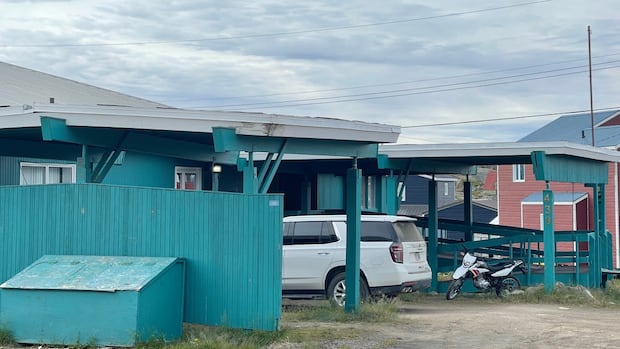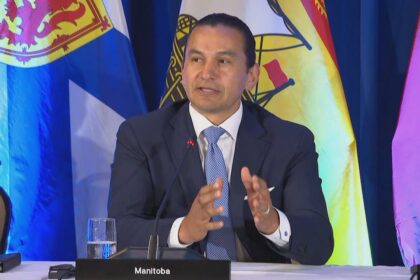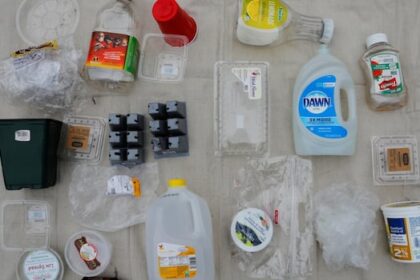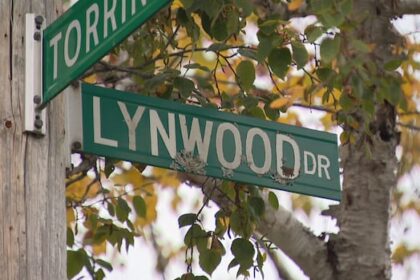NorthPeople working in child protection in Nunavut are sounding the alarm about the use of an Iqaluit facility as a group home, when it’s intended to be a safe space with programming for children in care. Facility opened last year was intended to be for visitations and programming for children in care Samuel Wat · CBC News · Posted: Sep 22, 2025 4:00 AM EDT | Last Updated: September 22Nunavut’s Department of Family Services announced the opening of Iqaluit’s Ilagiinniq Wellness Centre at building 439 in March 2024. For much of the past year it’s been used as a group home, according to people who’ve worked there. (Samuel Wat/CBC)People working in child protection in Nunavut are sounding the alarm about the use of an Iqaluit facility as a group home, when it’s intended to be a safe space with programming for children in care. The Department of Family Services announced in March 2024 the opening of the Ilagiinniq Wellness Centre at building 439. Previously a girls’ group home, the building was reopened last year to be a space for programs and supervised visitations between children in care and their families. If needed, it can also be used for “emergency placements” according to Family Services Minister Margaret Nakashuk’s statement in the legislative assembly from March 2024. But for much of this past year, emergency placements were all it was used for, according to a current employee as well as a former employee who left the department earlier this year. CBC News has agreed not to name the two people because they both currently work for the Nunavut government and fear repercussions. Both of them said Family Services had been using the facility as a group home for children and youth in the department’s care.In written responses to CBC News, the department said community social services workers (CSSW) would do their normal day jobs in the office, then go look after children in the department’s care at building 439, overnight. It said the emergency placements at 439 are generally for stays up to 30 days at a time, though there may be the possibility for extensions. “This approach allows the Family Wellness team to explore all available family placement options within the territory, ensuring that care decisions prioritize the best interests of the child,” the department wrote in an email. “It can be noted that these ‘placements’ were a place of safety to ensure the immediate needs of children apprehended were met.”The Department of Family Services in Iqaluit. (Matisse Harvey/Radio-Canada)’They need a lot of support and care’Children and youth are typically put in group homes as a last resort if there are no foster placements available. The former worker with the department said some staff would agree to the overnight shifts at Ilagiinniq Wellness Centre because it was good money, though they said they would often be “shamed or guilt-tripped” into showing up to the office the following day. They also said there was no additional training to care for these young people. “I just don’t think we’re showing up and giving our best to the children when we’re sleep-deprived, hungry, not showered,” the person said. The other person, who still works for Family Services, is concerned about the hazardous situations staff face, and they don’t believe they’re being fairly compensated for it.”We handle all calls, including missing children and home visits, in adverse weather conditions,” they said. “We have faced assaults, verbal abuse, and physical provocation.” Contractors filling key positions, including director, in Nunavut’s Family Services Confidentiality issues ‘baked into’ Family Services’ system, says Nunavut privacy commissioner Confidential hotline a step toward regaining public trust, says Nunavut Family Services official Jane Bates, Nunavut’s representative for children and youth, said those stories raise serious safety concerns. “There may be attachment issues going on [with the young people], they may be violent, they’re acting out and they need a lot of support and care. If you’re a [community social services worker] and you’ve been working all day in a very high stress environment, are you really in a position to offer that care and support?” Jane Bates, Nunavut’s representative for children and youth, says it’s important to have a visitation space for young people, outside of an office. (Samuel Wat/CBC)Loss of a visitation spaceBecause the Ilagiinniq Wellness Centre was largely being used as a group home, visitations for children in care were moved to the department’s downtown office at Grinnell Place. The office was where visitations used to occur, but the former department employee said all the rooms, resources and toys for visitations were removed when the department opened building 439 as a family resource centre. “The idea behind [creating 439] was to create less harm. Instead of traumatizing children more by bringing them into an office space after they were apprehended, we were bringing them to this building that was more homey,” the former worker said. They also believe a separate resource centre is necessary to measure how well parents are doing and whether they’re fit to be reunited with their children.”There’s no way of providing them a safe space in order to show what they’ve worked on, and how they’ve ensured that their home would be a safe space. And a lot of parents are homeless, so they can’t even do the visitation in their own home,” they said.”It keeps children in the system.”As of August, the department said some visitations have returned to the Ilagiinniq centre, but they’re still having to use the downtown office space. The department said it is “actively working” to change that. As of August, some visitations were still happening at the Family Services office at Grinnell Place. (Paul Chiasson/Canadian Press)Contractor to provide ‘urgently required’ servicesThings have changed in recent months though. In July, the department entered an eight-month contract, worth $2.2 million, with Paca Baffin Society Inc., to operate building 439 and provide “in-territory supervision and care of [children, youth and adults] including specialized programming and treatment services.”According to the contract obtained by CBC News, the Nunavut government determined the services are “urgently required” and the contractor is the only one “available and capable of providing the specialized services.”Paca Baffin Society Inc., which describes itself on Facebook as a non-profit organization, falls under the Paca family of companies. At least two of its companies are listed on Nunavut Tunngavik Inc’s Inuit firm database as providing security guard services. The contract states the services will be provided under the Guardianship and Trusteeship Act. That’s another concern for Bates, who says the Family Wellness division works under the Child and Family Services Act.”The Guardianship Act mainly deals with adults. It deals with young people who have been deemed not to have the capacity to make decisions for themselves,” she said.Paca Baffin Society Inc. declined to comment on the contract.The Department of Family Services would only say that the agreement has been under review and “amendments are being pursued to ensure alignment with legislative and operational standards.”None of this erases the main issue in Bates’ eyes, which is the reliance on group homes due to the lack of foster placements. “I think that the shortage of placements is unfortunately not surprising given the lack of commitment and priority that children in care in general have been given by the department,” she said.ABOUT THE AUTHORSamuel Wat is a senior writer for CBC North, based in Yellowknife. He has worked as a producer and reporter with CBC in Iqaluit and Ottawa, and for public and state broadcasters in New Zealand before that. You can reach him at samuel.wat@cbc.ca
Thursday, 5 Mar 2026
Canada – The Illusion
Search
Have an existing account?
Sign In
© 2022 Foxiz News Network. Ruby Design Company. All Rights Reserved.
You May also Like
- More News:
- history
- Standing Bear Network
- John Gonzalez
- ᐊᔭᐦᑊ ayahp — It happened
- Creation
- Beneath the Water
- Olympic gold medal
- Jim Thorpe
- type O blood
- the bringer of life
- Raven
- Wás’agi
- NoiseCat
- 'Sugarcane'
- The rivers still sing
- ᑲᓂᐸᐏᐟ ᒪᐢᑿ
- ᐅᑳᐤ okâw — We remember
- ᐊᓂᓈᐯᐃᐧᐣ aninâpêwin — Truth
- This is what it means to be human.
- Nokoma











